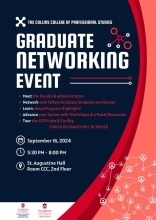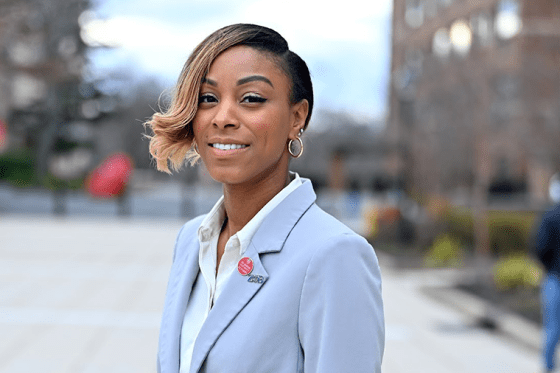

GR
International Communication, Master of Science
Unlock the power of communication in global affairs with a program that uniquely blends international relations, diplomacy, and media’s political economy to prepare you for impactful roles across diverse sectors.
- Home
- Academics
- Majors and Programs of Study
- International Communication, Master of Science
Why Choose the Master of Science in International Communication?
Ideal for Ambitious Professionals:
- Elevate your career with cutting-edge communication strategies and lead in a global arena.
- Gain essential skills to thrive in today’s vibrant, multi-sector environment.
Cutting-Edge Focus Areas:
- International Relations: Master global complexities to help you serve as a catalyst for positive change
- Communication as Diplomacy: Refine your strategic communication skills for influential leadership.
- Political Economy of Media: Uncover how media shapes and drives global economic trends.
Innovative Learning Experience:
- Dive into design thinking, immersive case studies, and hands-on problem-solving.
- Blend theoretical insights with real-world solutions to tackle communication and media challenges.
Diverse & Dynamic Student Body:
- Join a dynamic mix of traditional students and professionals from diverse fields.
- Connect with peers from architecture, chemistry, biology, engineering, and computer science, enhancing your learning with varied perspectives.
Advance your career and make a global impact with a degree that stands out. Apply now!
- Degree Type
- MS
- Area of Interest
- Communications, Marketing & Media
- Associated Colleges or Schools
- Program Location
- Queens Campus
- Required Credit Hours
- 36
Contact Us
We are here to answer your questions about the International Communication program and admission process.
Please contact:
Justin Goldberg
Graduate Assistant Dean
[email protected]
Program Director
Neil Feinstein

Courses
Focus on Theory and Praxis
The curriculum, grounded in both humanities and social sciences, encompasses a broad range of theoretical approaches to give you tools for analytical, strategic, and visionary thinking about the development of international communication structures and the evolving global communication and information order. In addition, you engage in empirical and practical analyses of cases in global media governance, public relations and marketing, advocacy and activism, public policy and diplomacy, as well as human rights.
The degree consists of total 36 credits that full-time students usually complete in four semesters.
- Theories and Processes of Communication
- Media and Communication Research Methods
- Media, Culture and Society
- International Communication
- International Communication and Global Development
- Media, Communication and Public Policy
- Media, Activism and Social Change
- Transnational Advocacy
- Media Governance
- Political Communication
- Media, Communication and Human Rights
- Global Feminism and Media
- Media, Communication and Public Diplomacy
- Media Strategies and the Politics of Peacebuilding
- Thesis I
- Thesis II
- Internship I
- Internship II
Internships and Places of Employment
The United Nations
United States Military Intelligence
St. John’s offers support and guidance to students interested in securing internships and job placement upon graduation. Internships and job placements are not guaranteed and some are secured directly by the student without direct guidance from the University. Some positions may have been held prior to enrollment at the University.
Admission Requirements
All applicants must possess a bachelor’s degree from an accredited institution or the international equivalent before enrollment at the graduate level. In addition to the application form and non-refundable application fee, candidates should submit the following:
- Statement of professional goals and resume, which can be uploaded as part of the application for admission.
- Official transcripts from all undergraduate, graduate, and professional schools attended.
- One letter of recommendation obtained from a professional or academic reference.
- Official TOEFL, IELTS, PTE or Duolingo scores are required for applicants whose native language is not English.
- Students with international credits must submit a course-by-course foreign credit evaluation with GPA calculation from a NACES member.
For additional information, please contact:
Office of Graduate Admission
[email protected]
718-990-1601
Program Research, Events, & Seminars
St. John’s University leads the way in innovation in this field by staying ahead of the emerging trends and incorporating these trends into our curriculum. Our faculty and students are involved in some of the most cutting-edge research and featured in prominent publications worldwide.
Explore upcoming events and seminars featuring top industry professionals and networking opportunities for students.
Scholarium is a peer-reviewed, open access, academic journal that publishes original papers, authoritative reviews, research reports, and information, and aims to foster interdisciplinary initiatives. The journal is managed by students and supervised by the faculty.
The Journal's Mission
The journal’s mission is to publish innovative empirical, theoretical, and review articles focused on human rights, civil rights, and social justice. Submissions are encouraged from a range of areas and divergent viewpoints in a readable fashion for those concerned and interested in current affairs.
Thursday, February 13, 2025
ELEVATE YOUR GRADUATE JOURNEY- Build a Professional Brand for Career Success
An invitation to experience orientation and a workshop designed to help you Discover Your unique STRENGTHS, the Importance of PERCEPTION, and Articulating your VALUE.

Monday, September 16, 2024
Graduate Networking Event
An exclusive event designed to help you elevate your resume, boost your LinkedIn presence, ace interviews or promotions, and expand your profession network.

Success at St. John's
Alumna Grateful for St. John’s and Queens Experiences
Tiffany Eason ’16CPS, ’18MS will always consider St. John’s University’s Queens, NY, campus, and the borough of Queens, home. A native of St. Albans, Queens, Ms. Eason has not only spent her entire life residing and going to school in Queens—her entire professional career, has been spent there.
Highlight
Ms. Eason wanted to stay close to home for college, and St. John’s was the natural choice, she recalled. Most importantly, she appreciated the faculty-to-student ratio.
Interested in Communications, Marketing & Media, but not sure if International Communication, Master of Science is right for you?
Related Programs
UG
Welcome to the Department of Rhetoric, Communication and Theatre!
- Queens Campus
UG
The Communication Studies program in St. John’s College of Liberal Arts & Sciences provides students with the theories and practices to communicate effectively.
- Queens Campus
UG
Journalists who report on political affairs need both a thorough knowledge of government and politics and the skills to collect, analyze, and communicate relevant information. The dual B.S./M.A. program in Journalism and Government and Politics will allow you to complete both degrees in just five years of full-time study.
- Queens Campus
UG
Journalists who report on culture and society need to understand social movements, cultural practices that influence human behavior, and the structures that make up our society, They also need the research skills to collect, analyze, and communicate relevant information.
- Queens Campus
UG
The Bachelor of Science in Journalism prepares students for careers in all aspects of modern journalism — print, online and broadcast — with skills in writing and reporting in multiple media.
- Queens Campus
GR
The Ph.D. in Multi-Sector Communication prepares you to explore new pathways to information sharing and communication, chart the agenda of this tech-driven evolution, and explore the new theoretical framework inherent in our digital native society.
- Queens Campus
UG
The Minor in Photojournalism prepares students to master photographic techniques and visual storytelling, combining artistic training with cultural and historical insight to thrive in today’s competitive visual arts landscape.
- Queens Campus
UG
We offer communication courses that feature performance activities and emphasize the theory, history, and criticism of rhetorical communication. Our experienced faculty members will help you achieve personal fulfillment, civic engagement, and career success.
- Queens Campus
UG
We offer communication courses that feature performance activities and emphasize the theory, history, and criticism of rhetorical communication. Our experienced faculty members will help you achieve personal fulfillment, civic engagement, and career success.
- Queens Campus
UG
The Associate Degree in Television and Film at St. John’s University offers students a thorough but rudimentary understanding of the theory, history, and practice of television and film craft and technique, and the business structures of the television and film industries.
- Queens Campus
UG
The B.S. degree program in Television and Film offers over 50 different Television and Film courses - in writing, production, post-production, animation, special effects, sound design, acting, theory of film and television, film studies, and the business of television and film.
- Queens Campus
UG
The Associate Degree in Television Studies at St. John’s University offers students a basic understanding of the theory, history, and practice of television craft and technique – studio and field work and their differences - and the business structures of the television industry.
- Queens Campus
UG
Learn what it’s like to be a part of the video game industry as an animator, storyteller, game tester, customer support agent, or full-on developer.
- Queens Campus


